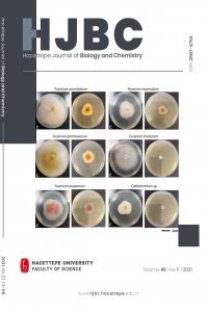Birds of Camili (Artvin, Turkey)
Birds of Camili (Artvin, Turkey)
This study was conducted in Camili (Artvin, of North-East Turkey). Breeding and autumn migrating field surveys between March 2003 and October 2003 were performed in order to determine breeding statutes and transit bird species of Camili. The study area was divided into four different sub–regions. In these sub-regions, timed-species counts (TSCs) were made to determine species abundance. The Margalef index and the cluster analysis were also used to determine species richness and similarity between sub-regions. In total, 49 bird species were recorded. The most abundant breeding bird species in the study area were determined as redstart (Phoenicurus phoenicurus), blackbird (Turdus merula), blackcap (Sylvia atricapilla), coal tit (Parus ater), great tit (Parus major), jay (Garrulus glandarius), and chaffinch (Fringilla coelebs). Moreover, it was found out that the area was probably used by a total 38 actual and/or possible bird species for breeding purposes.
___
- 1. Bilgin, C., A new biodiversity information management system and its application to the avifauna of Turkey, PhD thesis, METU, Ankara, 134 pp., 1994.
- 2. Kirwan, G.M., Martins, R.P., Eken, G. and Davidson, P., A Checklist of the Birds of Turkey. Sandgrouse. Supplement 1, 1-29, 1998.
- 3. Erciyas, K., Özcam, P., Gursoy, A. and Barış, Y.S., A new species record for Turkey: Arctic warbler (Phylloscopus borealis). İ. Kiziroğlu, A. Erdoğan, L. Turan, T. Albayrak (Ed.), Proceedings of the 1st International Eurasian Ornithology Congress, Akdeniz University, Antalya, p. 31, 2004.
- 4. Kok, M. and Ongeane, P., Raptor Migration in the North-East of Turkey, September 1990. Sandgrouse. 34, 8-11, 1995.
- 5. Mrlik, V., Bobek, M., Pojer, F., Skopek, J. and Formanek, J., Raptor migration in north-east Turkey, autumn 1994. Sandgrouse. 35, 41-45, 1995.
- 6. Akman, Y., İklim ve Biyoiklim (Biyoiklim Metotlar ve Türkiye İklimleri), Kariyer Matbaacılık Ltd. Şti., Ankara, 1999.
- 7. Sattersfield, A.J. and Crosby, M.J., Endemic Bird Areas of The World: Priorities for biodiversity conservation. Cambridge, UK, 1998.
- 8. Bibby, C.J., Burgess, N.D., Hill, D.A., and Mustoe, S., Bird Census Techniques. Academic Press, London, 2000.
- 9. Newton, S. E. and Newton, A.V., The effect of rainfall and habitat on abundance and diversity of birds in a fenced protected area in the central Saudi Arabian desert. J. Arid Environ. 35, 715-735, 1997.
- 10. Şişli N., Ekoloji. Yeni Fersa Matbaacılık, Ankara, 1996.
- 11. Tucker, G.M. and Evans, M.I., Habitats for birds in Europe: a conservation strategies for the wider environment. Cambridge, UK, 1997.
- 12. Magnin, G., Eken, G. and Yarar, M., Turkey. M.F. Heath and M. I. Evans (Ed.), Important Bird Areas in Europe: Priority sites for conservation 2: Southern Europe. BirdLife Conservation Series No. 8, Cambridge, pp. 651-689, 2000.
- 13. Ferguson-Lees, J. and Christie, D.A., Raptors of the world. Houghton Mifflin, USA, 2001.
- 14. Spierenburg, T. J., Zoun, P. E. F. and Smit, T., Poisoning of wild birds by pesticides. In Wild bird mortality in the Netherlands 1975-1989. Working group on Wild Bird Mortality, NSBP, 1990.
- 15. Tucker, G.M. and Heath, M.F., Birds in Europe: their conservation status, BirdLife International, Cambridge, UK, 1994.
- 16. Hallmann, B., Status and conservation problems of birds of prey in Greece. I. Newton and R.D. Chancelor (Ed.), Conservation studies on raptors. Cambridge, UK: International Council of Bird Preservation. pp. 55-59, 1985.
- 17. IUCN, Tetrao mlokosiewiczi. 2006 IUCN Red List of Threatened Species. url: http://www.iucnredlist.org, 2004.
- 18. Baskaya, S., Distribution and principal threats to Caucasian black grouse Tetrao mlokosiewiczi in the Eastern Karadeniz Mountains in Turkey. Wildl. Biol. 9, 377–383, 2003.
- 19. Gottschalk, T.K., Ekschmitt, K., Isfendiyaroglu, S., Gem, E. andWolters, V., Assessing the potential distribution of the Caucasian black grouse Tetrao mlokosiewiczi in Turkey through spatial modeling. J. Ornithol. DOI 10.1007/s10336-007-0155-z.
- ISSN: 2687-475X
- Yayın Aralığı: Yılda 4 Sayı
- Başlangıç: 1972
- Yayıncı: Hacettepe Üniversitesi, Fen Fakültesi
Sayıdaki Diğer Makaleler
In vitro shoot regeneration of oregano (origanum minutiflorum o.schwarz & davis)
In Vitro Shoot Regeneration of Oregano Origanum minutiflorum O. Schwarz & Davis
Nurullah ŞANLI, Güleren ÖZKAN, Senem ŞANLI
Bahar ERGÜN, Ali DERAZSHAMSHİR, Mehmet ODABAŞI
Hüseyin TUNÇMEN, M.Nalan TÜZMEN
Reactive brown 10-atteched polyamide hollow fiber for reversible amyloglucosidase immobilization
Erkut YILMAZ, Fatma YILMAZ, Adil DENİZLİ, Lokman UZUN
